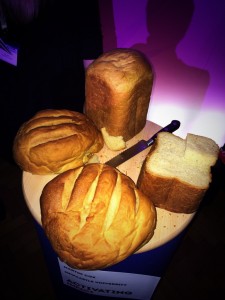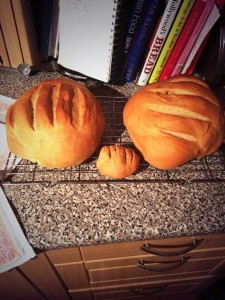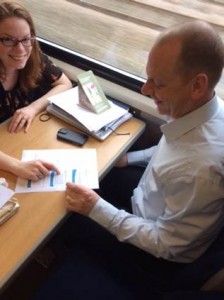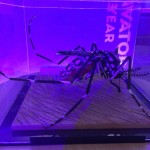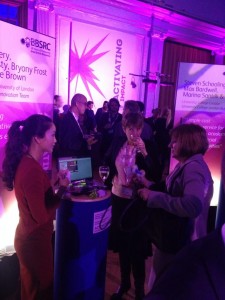Another excellent post by ICaMB’s Dr Matthew Wilcox as the fame of alginate spreads and seaweed bread goes on tour!
Well, I was kindly invited along to the BBSRC Fostering Impact awards ceremony in London a couple of weeks ago and although I wasn’t up for anything, Newcastle University were.
Fostering impact is a scheme run by the BBSRC to capture the economic and social impact of research funded by them. There are three competitions that fit the fostering impact scheme; ‘innovator of the year’, ‘activating impact’ and ‘excellence with impact’. The first is for an individual researcher, the second is for the knowledge exchange teams and the final award is for research organisations (runs from 2013 – 2015).
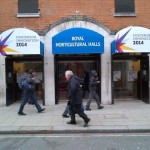
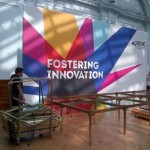 The knowledge exchange and commercialisation team at Newcastle University has changed substantially over the past couple of years. What was once a centralised Business Development Directorate has now become the Research Enterprise Service, comprised of three teams, each embedded in one of the Faculties. Each Institute or School now has their own dedicated business development manager (BDM), with ICAMB’s BDM being Laura Rush (who is very nice). They are now much easier to contact, whether it’s just a quick question or the drafting of patents.
The knowledge exchange and commercialisation team at Newcastle University has changed substantially over the past couple of years. What was once a centralised Business Development Directorate has now become the Research Enterprise Service, comprised of three teams, each embedded in one of the Faculties. Each Institute or School now has their own dedicated business development manager (BDM), with ICAMB’s BDM being Laura Rush (who is very nice). They are now much easier to contact, whether it’s just a quick question or the drafting of patents.
Newcastle’s application for the Activating Impact award was submitted back in October 2013 and used the wonderful research done by the beautiful people of ICAMB as its basis. In January the RES team found out that they had successfully made it to the final five (from 18) and through to the grand final in London. Newcastle was up against the knowledge exchange and commercialisation teams from King’s college London, Queen Mary University of London, University College London and University of Aberdeen. One of the requirements of the competition was to bring along someone to the final who had worked with RES, a ‘user’ (according to the BBSRC). They also wanted an iconic object?! Alginate bread it was then. Back in the kitchen I went. How many loaves would I need to feed the people there? Two should do it, right?
In London Martin Cox presented the case for Newcastle in front of a panel of scientists, business types and other technology transferers, assembled by the BBSRC. Demonstrating what Newcastle does well, how BDM’s have been embedded into each institute and also what they would do with the money if we won (£100k). He also described the additional internal funds that are available to help activate impact. FMS has two funds available; the first is to help with data collection for translational grant applications, the second is to support further claims in patent applications. The two internal grants can both potentially support a post doc salary for three months, plus consumables.
The awards ceremony combined the ‘innovator of the year’ and ‘activating impact’. I got a glitzy stand for my bread and also had the chance to look around the other pretty amazing stuff that was on display, like Dr Luke Alphey’s work. Luke ended up being named both social innovator and overall innovator of the year for his work on the genetic control of pests, including the dengue fever carrying mosquito.
I even got to meet the new (ish) CEO of the BBSRC, Professor Jackie Hunter, who was definitely not snapped stuffing free stuff into her bag!
Unfortunately Newcastle did not win, but being down to the last five of the competition is brilliant and should give confidence to ICAMB scientists that when help is required in achieving impact (social or economic), we have a great team to help.
Queen Mary University of London, whose entry was also being supported by a previous BBSRC Enterprise Fellow and King’s College London, ended up being joint winners each scooping £100k.
Perhaps if a few more of the world leading researchers in ICaMB engaged with the Enterprise team, they might not have to only take some eejit and his bread to the competition next year and increase NU’s chance of winning!

